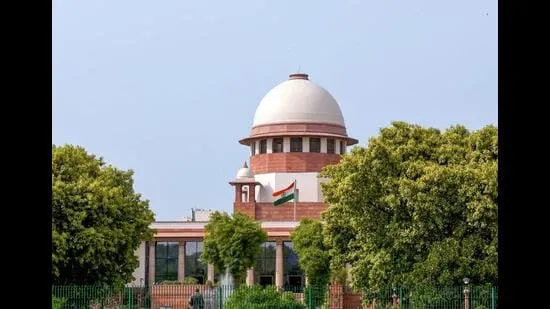Telling the court that things have changed since 2013, when the cap on iron ore mining was imposed in Karnataka and subsequently in Goa, two Union ministries - Ministry of Mines (MoM) and Ministry of Environment Forests and Climate Change (MoEFCC) claimed stricter regulatory checks and legal safeguards being put in place to avoid illegal mining flagged by the court in Karnataka, that was in violation of the prevailing laws.
Odisha currently contributes to half the country's iron ore production. The Centre argued that despite millions of tonnes of ore being extracted, the resources in the state have shown a 133% increase from 4,180 million tonnes in 2000 to 9,737.24 million tonnes in 2023.
This resource base is all set to increase considerably in the coming years as the MoM said that 71.52% of the potential area for iron ore in the state is yet to be geologically explored
Any capping on iron ore or manganese extraction will impact the steel production, the government said, explaining, "India is currently on a high growth trajectory with the overall objective of achieving broad based improvement in living standards of all sections of society. To fully harness its growth potential the country requires creation of infrastructure such as airports,railways, bridges, ports, real estate, manufacturing, etc. In all of these, indigenous production of steel will be extremely crucial."
In a separate affidavit, the Odisha government said, "Every Industry (defence, health care, automobile, etc.) is reliant on steel production which is ever increasing. Capping of iron ore mining would lead to a substantial deficit of production of steel and other metals. The dream of Atmanirbhar Bharat is dependent on mineral production which will be sabotaged in case of imposition of unwarranted capping."
The Centre further told the court that the concept of "inter-generational equity" does not mean imposing a ban or limit on mining of minerals. "It must be understood holistically considering the development needs of the country, resource or reserve augmentation, and potential for recycling. On all these parameters, the data clearly shows that no capping is warranted on production of iron ore in Odisha," the Centre submitted.
The affidavits came in response to an order passed by the top court which is examining a petition filed by non profit organisation Common Cause, which has advocated a cap on mining in Odisha based on the earlier instances of large-scale illegal mining in Karnataka and Goa.
The petitioner led by advocates Prashant Bhushan and Pranav Sachdeva pointed out that in August 2017, the top court had directed compensation to be recovered from miners for extracting iron ore in Odisha beyond the permissible limits. Bhushan said that the state had failed to recover the amounts worth more than ₹2700 crore.
A bench of justices Dipankar Datta and Augustine George Masih pulled up the state for the non-recovery of the compensation dues despite the order passed in 2017. It granted eight weeks to the state to indicate the steps being taken to effect recovery of the dues from the private miners. As regards the cap on mining, the court posted the matter for consideration in January allowing Common Cause and amicus curiae senior advocate ADN Rao to respond to both affidavits.
Besides MoM, even the MoEFCC told the court that the production of iron ore in Odisha is 159.22 million tonnes while the Environmental Carrying Capacity (ECC) sanctioned for iron ore mines in Odisha is 272.98 million tonnes till 2024-25. Thus, it said that the actual production was substantially less than ECC sanctioned capacity.
The MoEFCC further informed the court that in 2023, the matter of putting a cap on mining in Odisha was comprehensively considered in consultation with expert body CSIR-NEERI who did not support the idea due to the technological advancements in place and amendments in the law. Rule 35 of MCDR (Mineral conservation and Development Rules) 2017 provides for star rating of the mining leases based on the sustainable mining practices adopted by the miners as per NEERI suggestions.
Even the regulatory regime for the mining sector has undergone major changes with the introduction of an auction regime for grant of mineral concessions. The requirement of obtaining all the statutory clearances is mandatory before execution of the mining lease, the Centre added.
